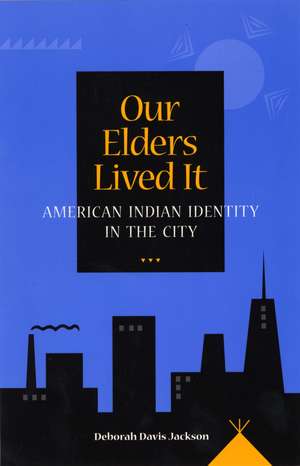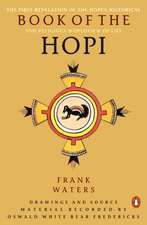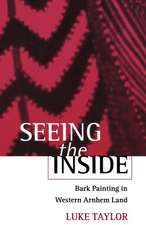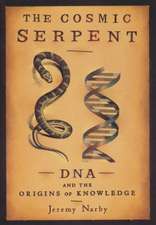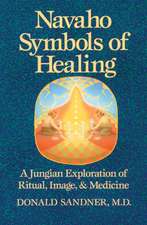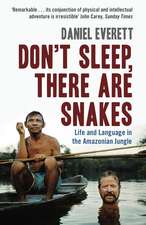Our Elders Lived It – American Indian Identity in the City
Autor Deborah Davis Jacksonen Limba Engleză Paperback – 30 noi 2001
More than half of all Native Americans live in cities, yet urban indians have not received the same attention as "traditional" indians who dwell on reservations. This groundbreaking anthropological investigation shatters stereotypes of what it means to be an ndian in America, arguing that the transition to an urban lifestyle requires a reshaping and reconceptualizing of self-identity.
One of the most pressing concerns facing urban Native Americans today is the question of what constitutes a legitimate claim to Native identity. The importance of identity emerges in such practical matters as participation in tribal functions, entitlement to community aid, and political representation. The appropriation of indian symbols and lifeways by nonIndians has further blurred notions of identity.
Explaining that ethnic identity is constructed and maintained through social interaction, Jackson demonstrates the importance of community in indian culture. Our Elders Lived It is the result of extensive fieldwork in an Upper Great Lakes midsized city, where life has been complicated by economic misfortune and social deprivation. Informed but not dominated by identity theory, Jackson's sensitive interviews and personal narratives allow the indian community to speak for itself and to present its own vision of the challenges facing urban Native Americans.
One of the most pressing concerns facing urban Native Americans today is the question of what constitutes a legitimate claim to Native identity. The importance of identity emerges in such practical matters as participation in tribal functions, entitlement to community aid, and political representation. The appropriation of indian symbols and lifeways by nonIndians has further blurred notions of identity.
Explaining that ethnic identity is constructed and maintained through social interaction, Jackson demonstrates the importance of community in indian culture. Our Elders Lived It is the result of extensive fieldwork in an Upper Great Lakes midsized city, where life has been complicated by economic misfortune and social deprivation. Informed but not dominated by identity theory, Jackson's sensitive interviews and personal narratives allow the indian community to speak for itself and to present its own vision of the challenges facing urban Native Americans.
| Toate formatele și edițiile | Preț | Express |
|---|---|---|
| Paperback (1) | 220.95 lei 6-8 săpt. | |
| MB – Cornell University Press – 30 noi 2001 | 220.95 lei 6-8 săpt. | |
| Hardback (1) | 702.64 lei 6-8 săpt. | |
| Northern Illinois University Press – 30 noi 2001 | 702.64 lei 6-8 săpt. |
Preț: 220.95 lei
Nou
Puncte Express: 331
Preț estimativ în valută:
42.28€ • 44.48$ • 35.10£
42.28€ • 44.48$ • 35.10£
Carte tipărită la comandă
Livrare economică 16-30 ianuarie 25
Preluare comenzi: 021 569.72.76
Specificații
ISBN-13: 9780875805917
ISBN-10: 0875805914
Pagini: 209
Dimensiuni: 152 x 228 x 15 mm
Greutate: 0.28 kg
Ediția:1
Editura: MB – Cornell University Press
ISBN-10: 0875805914
Pagini: 209
Dimensiuni: 152 x 228 x 15 mm
Greutate: 0.28 kg
Ediția:1
Editura: MB – Cornell University Press
Recenzii
"Magnificent.... Elusive issues of ethnic identity are explored sensitively and in depth."—Choice
"Exquisitely crafted."—Joan Weibel-Orlando, University of Southern California
"Exquisitely crafted."—Joan Weibel-Orlando, University of Southern California
Cuprins
Table of Contents Preface
Introduction: The Question of Identity
1. Identity and the City
2. Institutions and Identities
3. "Assimilated Indians"
4. "Paper Indians"
5. Family Ties
Conclusion: A Matter of Community
Appendix: Quoted Anishinaabe People
Notes
Bibliography
Index
Introduction: The Question of Identity
1. Identity and the City
2. Institutions and Identities
3. "Assimilated Indians"
4. "Paper Indians"
5. Family Ties
Conclusion: A Matter of Community
Appendix: Quoted Anishinaabe People
Notes
Bibliography
Index
Descriere
More than half of all Native Americans live in cities, yet urban indians have not received the same attention as "traditional" indians who dwell on reservations. This groundbreaking anthropological investigation shatters stereotypes of what it means to be an ndian in America, arguing that the transition to an urban lifestyle requires a reshaping and reconceptualizing of self-identity.
One of the most pressing concerns facing urban Native Americans today is the question of what constitutes a legitimate claim to Native identity. The importance of identity emerges in such practical matters as participation in tribal functions, entitlement to community aid, and political representation. The appropriation of indian symbols and lifeways by nonIndians has further blurred notions of identity.
Explaining that ethnic identity is constructed and maintained through social interaction, Jackson demonstrates the importance of community in indian culture. Our Elders Lived It is the result of extensive fieldwork in an Upper Great Lakes midsized city, where life has been complicated by economic misfortune and social deprivation. Informed but not dominated by identity theory, Jackson's sensitive interviews and personal narratives allow the indian community to speak for itself and to present its own vision of the challenges facing urban Native Americans.
One of the most pressing concerns facing urban Native Americans today is the question of what constitutes a legitimate claim to Native identity. The importance of identity emerges in such practical matters as participation in tribal functions, entitlement to community aid, and political representation. The appropriation of indian symbols and lifeways by nonIndians has further blurred notions of identity.
Explaining that ethnic identity is constructed and maintained through social interaction, Jackson demonstrates the importance of community in indian culture. Our Elders Lived It is the result of extensive fieldwork in an Upper Great Lakes midsized city, where life has been complicated by economic misfortune and social deprivation. Informed but not dominated by identity theory, Jackson's sensitive interviews and personal narratives allow the indian community to speak for itself and to present its own vision of the challenges facing urban Native Americans.
Notă biografică
Deborah Davis Jackson is Assistant Professor of Anthropology at Earlham College.
